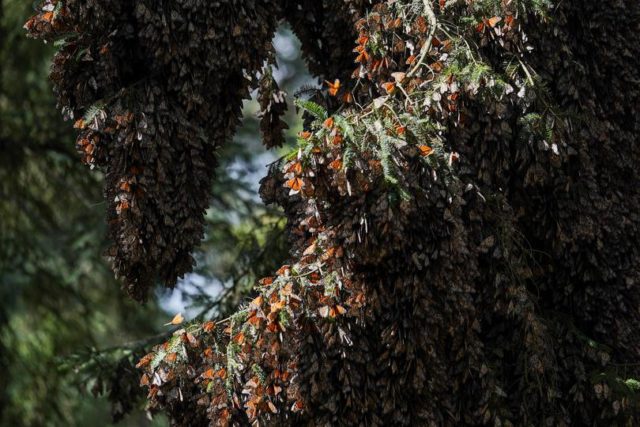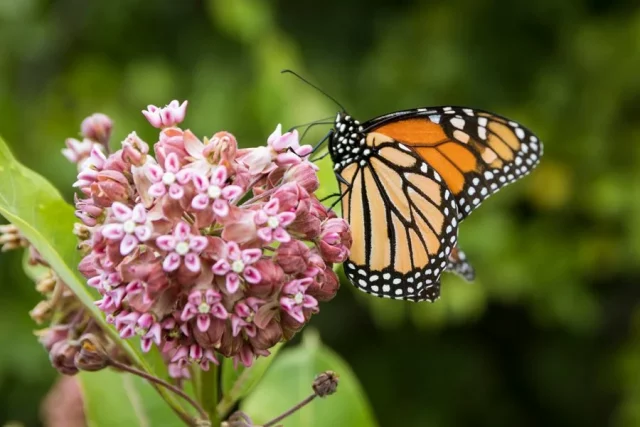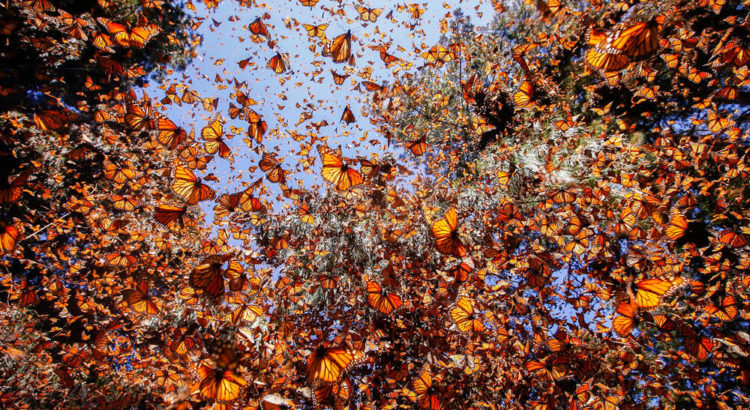Krystal Daniele- SCA NH Corps- Discover the Power of Parks Interpretive Ranger
3,000 Miles from home
New Hampshire is home to over 100 different species of butterflies. Eastern Swallowtails, White Admirals, Karner Blues, and so many more. So why is the Monarch butterfly so important? Every year Monarchs migrate 3,000 miles from New Hampshire to Mexico. This is the longest migration of any butterfly in North America, but why do they do it? Long story short: they do it to survive. New England is known to have harsh winters. With temperatures often around or below freezing, it’s no wonder they make the 3,000 mile trip. Monarchs will start to migrate in mid to late September. This trip will take about 2 months to complete.
Life Cycle
Like all other butterflies, Monarchs go through 4 life cycles. They start as an egg, then larva (caterpillar), pupa (Chrysalis) and finally an adult butterfly. This cycle is fairly quick. Most adult butterflies only live for about a month. So how can Monarchs make it through the 2 month migration? The generation of monarchs that are born before during the migration period will live over half a year! These butterflies will be hatched around mid August. The butterflies will make it to Mexico around November and return to New England around June. On the way back, the butterflies will reproduce throughout the U.S. While 1 generation of Monarchs make their way to Mexico, their offspring will be the ones returning to the White Mountains. Once the Monarchs make it to Mexico, they will spend the next 4 months living on Oyamel Fir Trees. During this time, they will live off of reserves and won’t eat.

Get Involved!
There are way that we can help scientist to track the migration patterns and population of Monarchs. During the late summer, we can tag butterflies. Monarch Watch is an organization that conducts monarch butterfly monitoring. During the early summer, you can visit their website and order your tags! These tags are actually a sticker. They are gently placed on the wing. Butterflies that have these tags can be reported and tracked. Now that Monarchs are on the endangered species list, it is crucial that we do our part. There are many reasons that the monarch population is declining. Some of the main reasons are habitat loss and pesticides. Another way that we can get involved is by planting milkweed. Milkweed is the only host plant for the Monarch. This means that these butterflies will only eat and lay eggs on this specific plant. By supplying more food and shelter for the species, you are helping to increase the population. There are many other agencies that you can also use to participate in Monarch monitoring. Some agencies also help to monitor milkweed and caterpillar populations as well. The link below will provide over 100 agencies that work together to help keep track of monarch population.
https://monarchjointventure.org/about-us/partners

What Now?
Unfortunately, the Monarch butterfly is currently endangered. Their populations are declining year after year. By doing our part, we can help bring the Monarch population back up. Plant native milkweed in your garden, participate in Monarch monitoring projects, and spread awareness and information. Seemingly small acts can bring on big change. Together we can protect this iconic butterfly.

